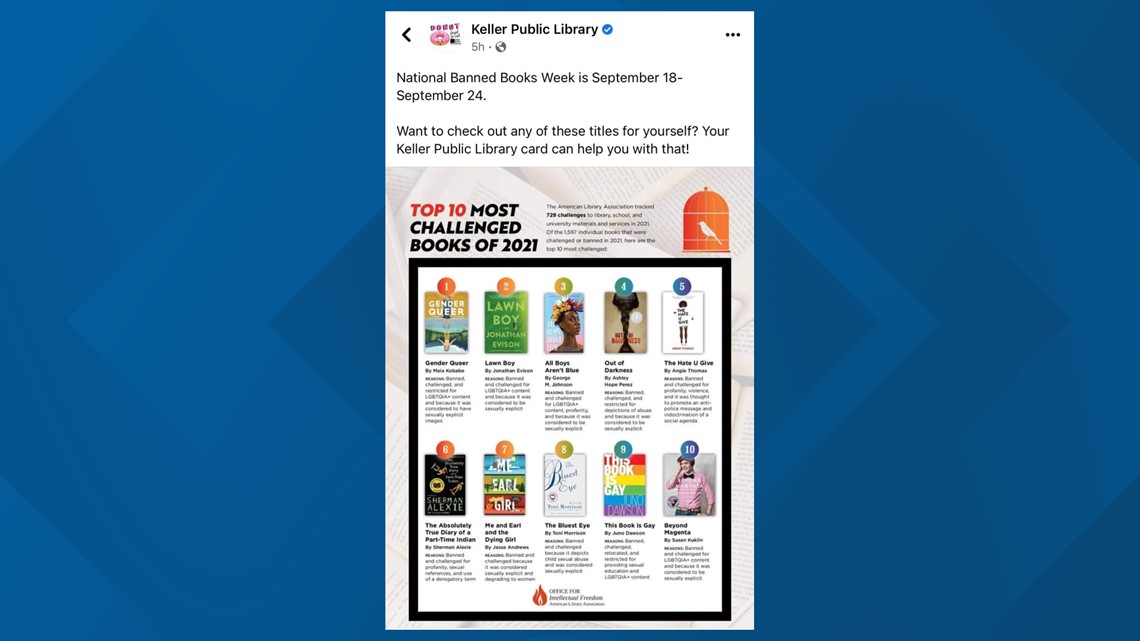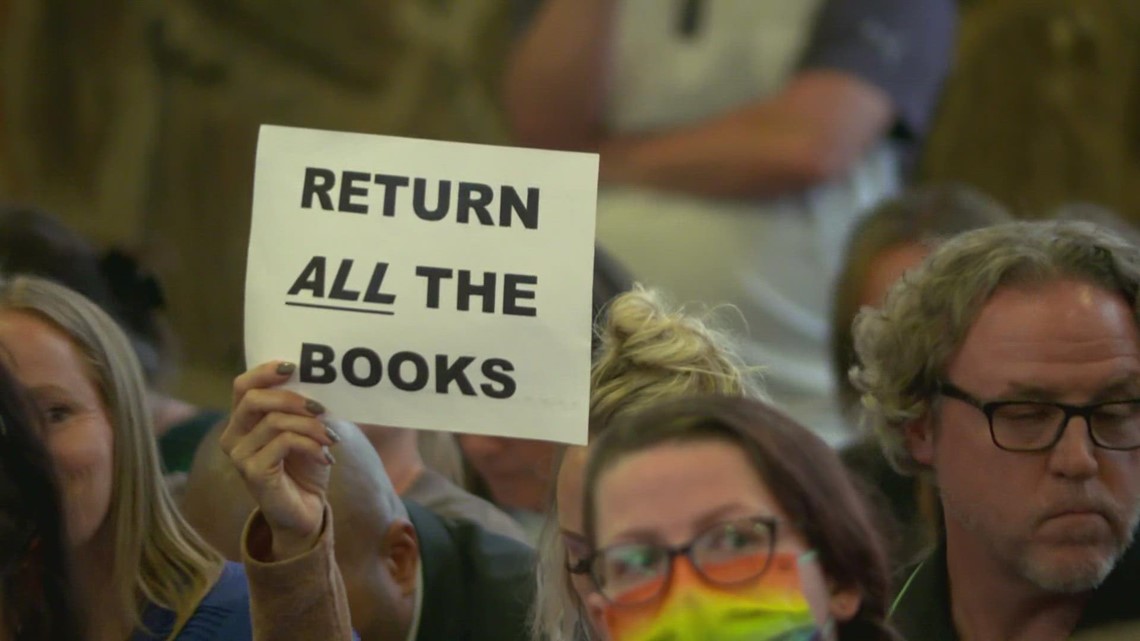KELLER, Texas — The social media pages of public libraries across the country are celebrating banned books in honor of national Banned Books Week.
Banned Books Week has been around since 1982, according to the American Library Association Office for Intellectual Freedom.
But when the Keller Public Library posted about it, the Keller city manager decided the post needed to come down.
The library used its Facebook account to share an image created by the American Library Association showing the top ten most challenged books of 2021.
The library’s post accompanying the image read, “Want to check out any of these titles for yourself? Your Keller Public Library card can help you with that.”


The post intrigued Heather McCown, a Keller resident.
“I thought – that’s a great idea,” she said.
So, she liked the post and shared it.
Within hours, the Keller Public Library post celebrating Banned Books Week was deleted.
In an email, a city spokesperson told WFAA, “City leadership was concerned that residents would think we were trying to cause controversy given recent debates about books in the school district, so we removed the post as that was certainly not the intent.”
The spokesperson said “a number of council members” contacted the city manager about the post and the city manager made the decision to remove it.
Residents who messaged the Keller Public Library asking why the post was removed received replies inviting them to “still celebrate” Banned Books Week inside the library in person.


“To me the city asking the library to remove it was a form of censorship,” said McCown.
Keller ISD gained nationwide attention at the beginning of the school year when the Bible, a version of The Diary of Anne Frank, and several other titles were removed from use.
After long and contentious school board meetings, the district adopted new guidelines governing content and access.
The Bible and the Anne Frank diary were put back in use, but other books were removed despite having previously been approved by an independent committee of community members.
The literacy non-profit PEN America released a report at the beginning of Banned Books Week showing Texas ranked first among states when it came to book bans and challenges in schools.
PEN America said Texas had 801 book bans or challenges in 22 school districts in the 2021-2022 school year.
With 566 bans or challenges, Florida was second. Pennsylvania was third with 457 bans or challenges.


Suzanne Nossel, chief executive officer of PEN America, said in a statement:
“This censorious movement is turning our public schools into political battlegrounds, driving wedges within communities, forcing teachers and librarians from their jobs, and casting a chill over the spirit of open inquiry and intellectual freedom that underpin a flourishing democracy.”
McCown said she respects educational materials in schools being reviewed to be sure they are age appropriate, and she agrees that parents should have an opportunity to decide what books their children are ready to read.
But she points out that some of the discussion during the school discussion was that material could be accessed at the public library.
“We may not agree on which books should be challenged or banned, but it is important that we do not censor access to ideas,” she said.

